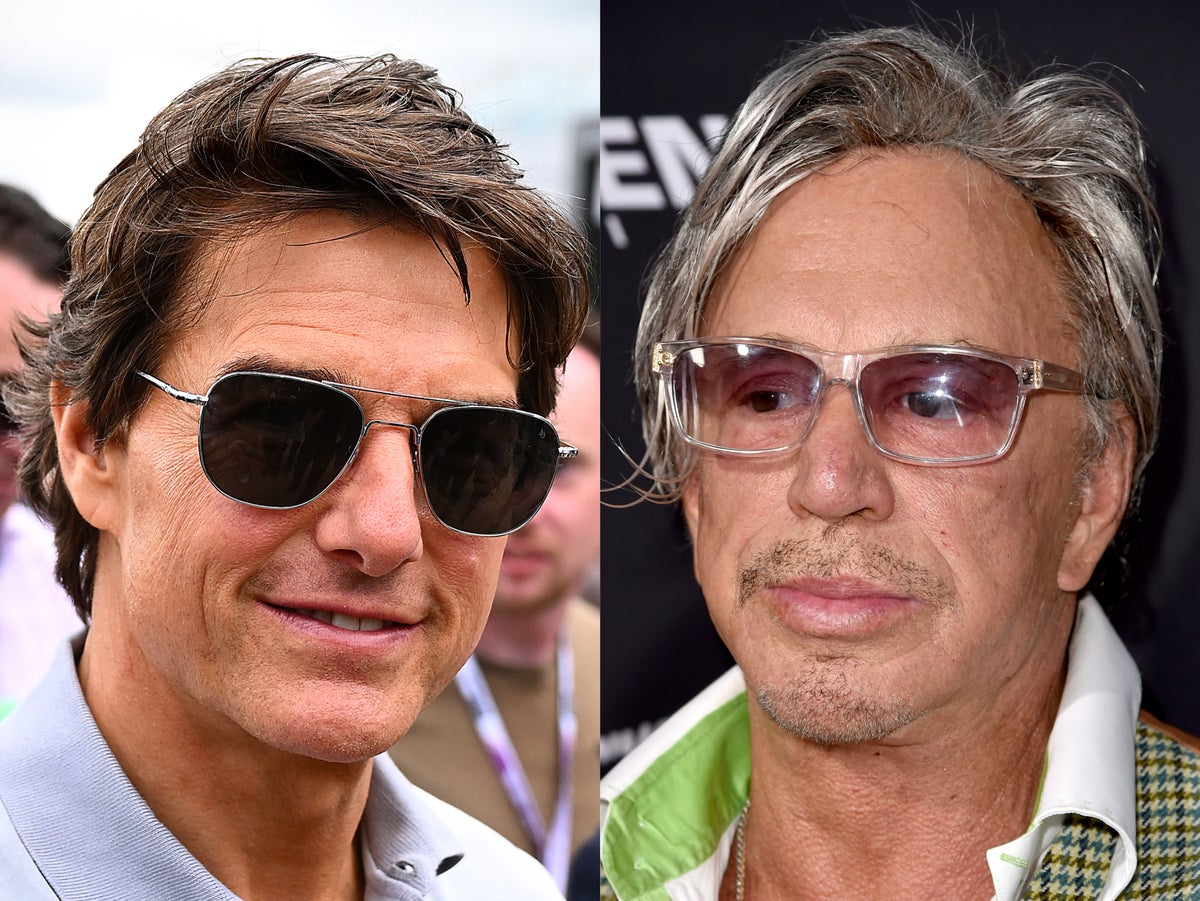
God bless the Hollywood bust-up. In an era when the edges seem to have been thoroughly sanded off every celebrity interaction, when “heartwarming moment” tweets and co-star bromance compilation videos go viral at the drop of a hat, there’s something refreshing about some good old-fashioned thespianic mud-slinging. There are exceptions, of course: performers who refuse to submit their offscreen personas to the stern marshalling of bubblewrap-gloved PR specialists. Every so often, you get someone like Sam Elliott calling the Best Picture frontrunner a “piece of s***”. Or Brian Cox branding Johnny Depp “overblown” and “overrated”.
The latest practitioner of this dying artform is none other than Mickey Rourke. During an appearance on Piers Morgan Uncensored this week, the Wrestler star delivered a withering assessment of Tom Cruise, whose latest legacyquel Top Gun: Maverick has recently become the year’s highest-grossing film, and the biggest hit of Cruise’s illustrious career. “That doesn’t mean s*** to me,” Rourke grumbled. “The guy’s been doing the same effing part for 35 years. I got no respect for that.” Rourke then contrasted him with the sort of actors he actually rates – Al Pacino; Christopher Walken; Richard Harris; Ray Winstone; early Robert De Niro. “I think [Tom Cruise is] irrelevant, in my world,” he added.
To be fair to Rourke, at least nobody can accuse him of punching down. In the last few years, Cruise has become a popular cinematic force unto himself, nullifying the doubters (Rourke excluded) with his unflapping commitment to elaborate and – to most eyes – death-defying stunts, all performed practically. As the cinematic mainstream has shifted listlessly towards bland CGI superheroism, Cruise’s oeuvre has managed to somehow distinguish itself. Each new Mission: Impossible entry is now lavished with praise. Top Gun: Maverick has swooped in and rescued cinema from the clutches of the pandemic. Cruise is the figurehead of his own cine-cult – and maybe it’s fair enough. Rourke, meanwhile, has been pretty much out of the mainstream limelight since 2014’s Sin City: A Dame to Kill For.
Nonetheless, you can see where his complaints are coming from. Cruise is a strange and idiosyncratic performer – a man whom even his diehard fans would probably admit is “intense”. It’s also true that, stunts aside, Tom Cruise doesn’t really do a lot of capital-A “Acting”. Place him next to a young De Niro and yes, of course, he’s going to look a little short on range. But it’s not just a question of age or even talent; modern actors like his Maverick co-star Miles Teller are also far more traditionally mannered in their approach to building a character. Performers tend to talk a lot about their “process” when it comes to characterisation; Cruise’s process seems to revolve around harnessing himself to the outside of whichever airborne vehicle is most lethal-looking.
Of course, 35 years is an exaggeration on Rourke’s part; it’s been less than two-and-a-half decades since Cruise was working with auteurs like Stanley Kubrick (in Eyes Wide Shut), Paul Thomas Anderson (Magnolia), Michael Mann (Collateral) and Steven Spielberg (Minority Report; War of the Worlds) delivering genuinely layered character work in substantial, adult-oriented films. Hell, Tropic Thunder came out in 2008, and I don’t think anyone would argue Cruise’s bald, bad-tempered Les Grossman was just him doing “the same effing part”. But Cruise’s performances in recent blockbuster fare have been largely interchangeable, be it Mission Impossible or Top Gun or even The Mummy.
There is also, it should be said, nothing inherently wrong about the one-size-usually-fits-all approach to character work. Cruise is sometimes described as our last true movie star; in some ways, he embodies a pre-Brando sense of persona-based acting, where audiences come to expect and embrace consistency from one project to the next. Would Rourke have had a go at Jimmy Stewart for doing the same part for years? Or John Wayne?
No, he is, I’m afraid, fighting a losing battle here. Cruise has, through sheer force of will, established himself as cinema’s 21st century darling, the medium’s own blank-faced General Custer making a last stand for craft and spectacle. “Irrelevant”? Hardly. But there’s something refreshing about hearing it said.







